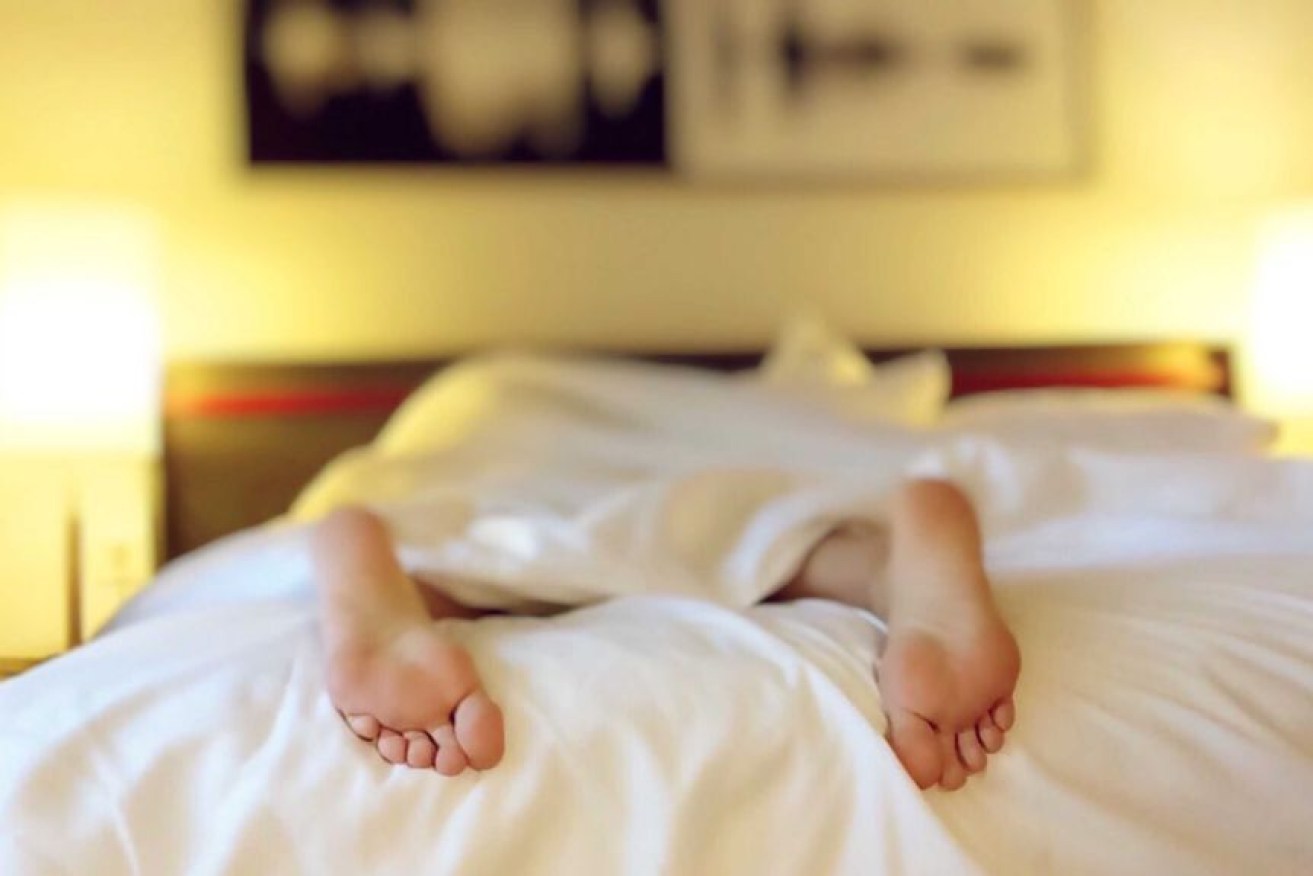Feeling tired? Here’s how to improve your energy and motivation levels
Anxiety, depression and poor sleep are all leading some people to feel as if they are in a state of perpetual jetlag during 2020, but experts say there are some small steps you can take to put a spring back in your step.

An increase in anxiety and depression could explain why some people are feeling fatigued during the pandemic. (Photo: Supplied, Pexels)
This year has largely been swallowed up by COVID-19, leading to the shutdown of economies, schools, businesses, arts and entertainment.
If you are constantly tired or feeling trapped in a state of perpetual jetlag during the pandemic, you are not alone.
While consistent tiredness could point to a serious medical condition, experts say knock-on effects from the pandemic may explain why some normally healthy people feel sluggish.
Christine Morgan, the chief executive of the National Mental Health Commission, said she regularly heard from people who were confused about why they felt fatigued, despite their social and work lives slowing down.
Morgan said fear, anxiety and depression was heightened at the start of the pandemic.
The resurgence of the virus in Victoria, leading to a deadly second wave, ended any hopes of a return to normalcy anytime soon.
“One of the real challenges is we haven’t had any real respite from it,” she said.
“Fatigue comes from a number of factors and emotional fatigue is a very real condition.”
Research from the Australian National University released last week showed three in five people felt anxious or worried about coronavirus in August, along with increases in loneliness and declines in life satisfaction.
Sleeping it off won’t work
Working from home requirements, job losses, lockdowns and curfews in Victoria may have increased opportunities for people to spend time in bed.
For adults, it could finally provide enough time to get the recommended seven to nine hours of sleep each night.
But Dr Darren Mansfield, from the Epworth Sleep Centre, says “the general view is people are sleeping worse in the lockdown”.
Quality of sleep matters more than quantity, Mansfield said.
“If you spend too much time in bed then you start waking. That will be made worse if there are underlying levels of anxiety,” he said.
“The solution is trying to match your time in bed with the amount of sleep you ordinarily need.”
Mansfield said anxiety in younger people often centred around the social and job impacts of the pandemic, while older people’s concerns were more around catching the virus itself.
A multinational research team is also investigating whether people are experiencing more vivid dreams, including nightmares, during the pandemic.
“It will be interesting to see whether people dream more about virus-related threats, like getting infected, and whether social isolation changes the kinds of social interactions we have in our dreams,” said Monash University researcher Jennifer Windt.
Look into the (natural) light
For all the complaints about the morning commute to work, Associate Professor Sean Cain said it did have one clear benefit; exposing people to natural light.
Cain, a Monash University expert on the body’s circadian clock, said more time indoors during the pandemic could be causing people to be exposed to less sunlight.
“When we’re in bright light we tend to feel in a better mood,” he said.
Having less of that will result in a lower mood.
“Even without the pandemic, people are spending 90 per cent of their time indoors — that can only be greater now.”
On the flipside, Cain believes homes are too bright at night and he suggests dimming lights inside about three hours before going to bed.
That includes limiting screen use just before bed, or at the very least, turning on a device’s blue light filter.
“The body clock wants regularity and it wants really distinct signals,” Cain said.
Routine is key
The experts all agree that setting a routine and trying to stick to it can have mental and physical health benefits.
Delwyn Bartlett, an Associate Professor at the Woolcock Institute of Medical Research, said a good balance of sleep, exercise and diet were vital.
“Even at home, you can do some weights and some exercises on the floor,” she said.
“You can get up and stretch. Humans need to get that mind-body connection.
“You want to be getting up at the same time each day. It’s far more important than the going-to-bed time — unless you’re going to bed too late or too early.”
A quick afternoon nap is also OK, Bartlett said, as long as it does not drag on for longer than 10 or 15 minutes of slight sleep.
“It’s when we go to slow-wave sleep or deep sleep, that’s what really impacts and is destructive for night-time quality of sleep,” she said.
‘Do things you enjoy everyday’
University of Newcastle health sciences director, Dr Clare Collins, said she had been encouraged by some of the dietary changes brought on by the pandemic.
“People aren’t getting out to pubs and clubs, and people are cooking,” she said.
“People are making basic food and people haven’t gained huge amounts of weight, because the food you cook is not as energy dense and poor as the junk food you buy when you’re away from home.”
Collins said food can serve another role; it provides a connection between people.
“You could have a cooking challenge with a group of friends,” she said.
Morgan also said anyone needing help should reach out to friends or professionals.
“Do things you enjoy every day,” she said.
“It’s not only okay to take time out to do something that brings you pleasure, it’s actually a really important way to help us rebalance and re-energise.”
– ABC / Kristian Silva












